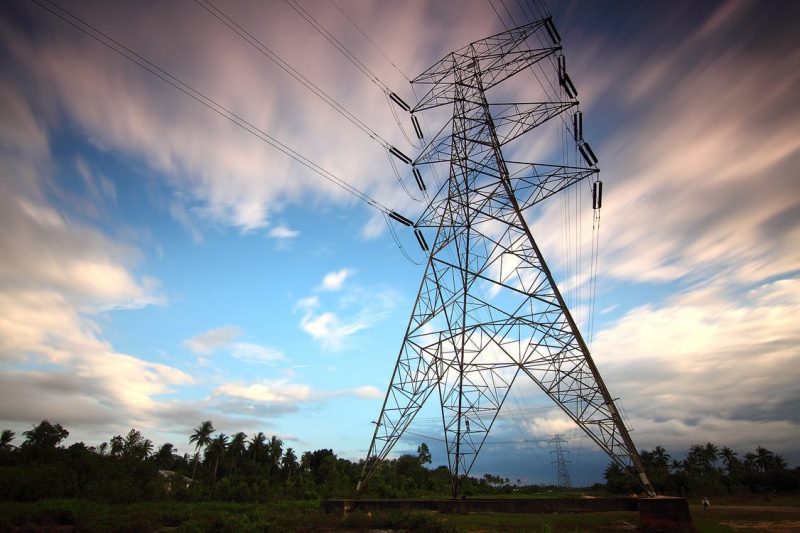Community
Massachusetts AG Healey reaches settlement with electric company over deceptive practices

BOSTON – A Connecticut-based competitive electric supplier and two of its principals have agreed to pay up to $10 million, including $7.25 million to affected consumers, and make significant changes to the company’s sales practices to settle allegations that they used unfair and deceptive sales tactics to lure more than 100,000 Massachusetts customers into expensive contracts with high electricity rates, Attorney General Maura Healey announced.
The consent judgment, entered in Suffolk Superior Court on Tuesday, settles claims AG Healey’s Office made against Starion Energy, Inc., Ruzhdi Dauti, and Dashmir Murtishi, in its October 2018 lawsuit. The AG’s lawsuit alleged that the defendants violated the state’s consumer protection laws by engaging in unfair sales tactics, including unsolicited telemarketing calls and pre-recorded robocalls, that deceived Massachusetts customers by falsely promising them lower electricity rates while ultimately charging them, collectively, millions more on their bills.
“Starion Energy used unsolicited telemarketing calls to falsely promise Massachusetts customers big savings on their electricity bills and then illegally charged them sky-high rates month after month,” AG Healey said. “Our settlement returns millions of dollars to tens of thousands of customers who were harmed by this company’s deceptive tactics. We are working to stop these predatory companies from scamming Massachusetts residents.”
According to the AG’s Office, Starion signed up more than 117,000 Massachusetts customers to variable rate electricity contracts. The AG’s Office alleges that these customers paid millions more for their electricity than they would have if they had received basic service from their utility company. The AG’s Office also alleged that Starion’s telemarketing and pre-recorded robocall scripts used deceptive and misleading information including that “most consumers are overpaying on their energy bills by hundreds of dollars each year” and that new laws that have been passed in the area give consumers “the right to receive a lower rate on [their] current electric bill.”
Under the terms of the consent judgment, Starion will pay up to $10 million including $7.25 million in restitution that will go to affected customers and $250,000 in penalties that will go to the state’s general fund. Of the remaining $2.5 million, $2 million will be forgiven if Starion complies with the terms of the settlement. The portion of the $2.5 million amount that is not forgiven will fund programs that assist customers with paying or lowering their energy bills.
Restitution will be paid by checks mailed to eligible customers over several phases spanning the next two years. Customers will not be required to fill out a claim form to receive restitution. Customers are eligible to receive restitution if they purchased variable rate electricity service from Starion, paid more than they would have paid their utility for basic service electricity, and did not separately seek restitution through Starion’s Delaware bankruptcy proceeding.
The settlement requires that Starion make several substantial changes to its marketing activities in Massachusetts. For example, under the settlement, Starion will not enroll any new Massachusetts customer in a variable rate contract for a three-year period. The company is also required to ensure, for a three-year period, that the amounts that low-income customers pay for electricity supply does not exceed what they would have paid if they received basic service through their utility company. The settlement requires the company to hire, and pay for, a monitor to implement a three-year program to ensure that Starion complies with the state’s consumer protection law and with the terms of the settlement.
According to Healey, in the last four years, residents in Massachusetts filed more than 1,000 complaints with the AG’s Office about competitive suppliers engaging in aggressive and deceptive tactics. Complaints include suppliers pretending to be a utility company to induce customers to turn over sensitive information; suppliers harassing customers with repeated calls or home visits; and door-to-door salespeople forcing their way into elderly customers’ homes and refusing to leave without a signed contract.
-

 Community6 years ago
Community6 years agoNational Shrine of La Salette Festival of Lights 2017 set to begin
-

 Community6 years ago
Community6 years agoMassachusetts State Police looking for good home for retired dogs
-

 Crime6 years ago
Crime6 years agoFall River ranked most dangerous city in Massachusetts according to report
-

 latest6 years ago
latest6 years agoDurfee student allegedly overdoses on marijuana
-

 Community6 years ago
Community6 years agoVideo of Fall River Police goes viral
-

 Causes6 years ago
Causes6 years agoMissing Fall River woman found deceased
-

 Crime6 years ago
Crime6 years agoFall River Police add names to most wanted list
-

 Causes6 years ago
Causes6 years agoFall River teenager reported missing has been found





7oor
August 23, 2020 at 9:53 am
Very good post! We are linking to this great content on our
website. Keep up the great writing.